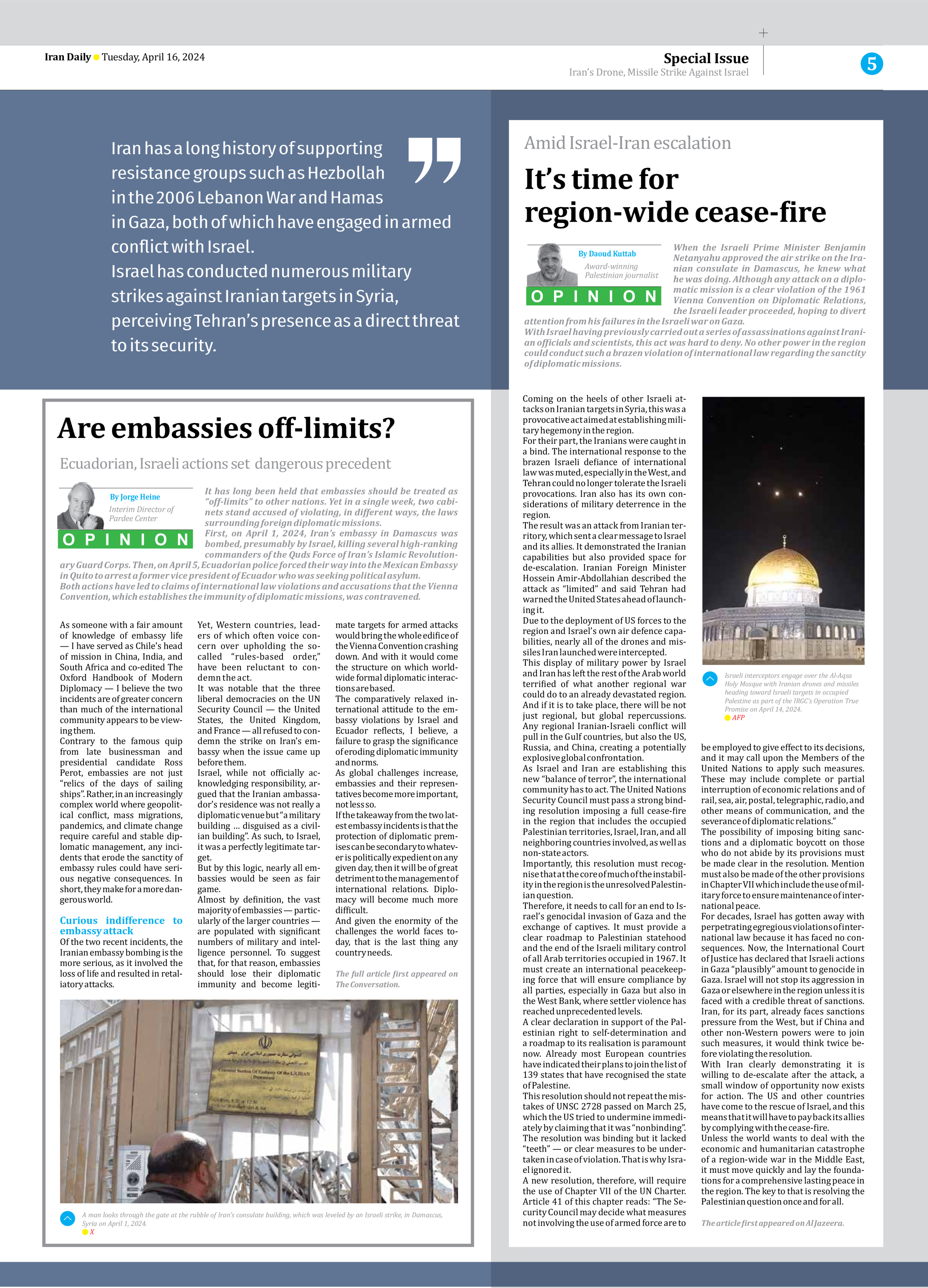
Are embassies off-limits?
Ecuadorian, Israeli actions set dangerous precedent
It has long been held that embassies should be treated as “off-limits” to other nations. Yet in a single week, two cabinets stand accused of violating, in different ways, the laws surrounding foreign diplomatic missions. First, on April 1, 2024, Iran’s embassy in Damascus was bombed, presumably by Israel, killing several high-ranking commanders of the Quds Force of Iran’s Islamic Revolutionary Guard Corps. Then, on April 5, Ecuadorian police forced their way into the Mexican Embassy in Quito to arrest a former vice president of Ecuador who was seeking political asylum. Both actions have led to claims of international law violations and accusations that the Vienna Convention, which establishes the immunity of diplomatic missions, was contravened.
By Jorge Heine
Interim Director of Pardee Center
As someone with a fair amount of knowledge of embassy life — I have served as Chile’s head of mission in China, India, and South Africa and co-edited The Oxford Handbook of Modern Diplomacy — I believe the two incidents are of greater concern than much of the international community appears to be viewing them.
Contrary to the famous quip from late businessman and presidential candidate Ross Perot, embassies are not just “relics of the days of sailing ships”. Rather, in an increasingly complex world where geopolitical conflict, mass migrations, pandemics, and climate change require careful and stable diplomatic management, any incidents that erode the sanctity of embassy rules could have serious negative consequences. In short, they make for a more dangerous world.
Curious indifference to embassy attack
Of the two recent incidents, the Iranian embassy bombing is the more serious, as it involved the loss of life and resulted in retaliatory attacks.
Yet, Western countries, leaders of which often voice concern over upholding the so-called “rules-based order,” have been reluctant to condemn the act.
It was notable that the three liberal democracies on the UN Security Council — the United States, the United Kingdom, and France — all refused to condemn the strike on Iran’s embassy when the issue came up before them.
Israel, while not officially acknowledging responsibility, argued that the Iranian ambassador’s residence was not really a diplomatic venue but “a military building … disguised as a civilian building”. As such, to Israel, it was a perfectly legitimate target.
But by this logic, nearly all embassies would be seen as fair game.
Almost by definition, the vast majority of embassies — particularly of the larger countries — are populated with significant numbers of military and intelligence personnel. To suggest that, for that reason, embassies should lose their diplomatic immunity and become legitimate targets for armed attacks would bring the whole edifice of the Vienna Convention crashing down. And with it would come the structure on which worldwide formal diplomatic interactions are based.
The comparatively relaxed international attitude to the embassy violations by Israel and Ecuador reflects, I believe, a failure to grasp the significance of eroding diplomatic immunity and norms.
As global challenges increase, embassies and their representatives become more important, not less so.
If the takeaway from the two latest embassy incidents is that the protection of diplomatic premises can be secondary to whatever is politically expedient on any given day, then it will be of great detriment to the management of international relations. Diplomacy will become much more difficult.
And given the enormity of the challenges the world faces today, that is the last thing any country needs.
The full article first appeared on The Conversation.







